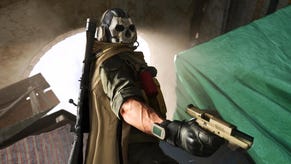Call of Duty: Modern Warfare Interview: How the New Single-Player Campaign Will Handle Player Choice and Civilian Casualties
Studio narrative director Taylor Kurosaki tells us about how and why Infinity Ward is reinventing a fan revered subseries.
This article first appeared on USgamer, a partner publication of VG247. Some content, such as this article, has been migrated to VG247 for posterity after USgamer's closure - but it has not been edited or further vetted by the VG247 team.
Today, Infinity Ward and Activision unveiled the next step in the Call of Duty series, one that's actually looking at its roots for inspiration. It's Call of Duty: Modern Warfare. It's not a sequel, nor is it a "soft reboot," as Infinity Ward's studio narrative director chides me when I mention the phrase.
Instead, it's a "reimagining" of Modern Warfare, and don't worry, it has a single-player campaign. The Russians, seemingly, are still the "bad guys," though this year's Modern Warfare promises to be in the gray territory of right and wrong. Judging from two extended demos press were shown a couple weeks ago, unsettling is about the best possible term for it.
On one half, we watched a Tier 1 Operators team break into a London townhouse following a terrorist attack in the city. They kill nearly all the presumed people responsible for the attack inside with uneasy silence and calculated precision. On the other, we watched two young children in the Middle East live through their town being invaded and bombed, as not only are their parents killed in front of them, but they too must resort to violence in order to survive the situation.
Earlier this week, we talked on the phone with the aforementioned narrative director Taylor Kurosaki, a former narrative design lead at Naughty Dog who joined Infinity Ward in 2014. In addition to clarifying what not-a-reboot category Modern Warfare truly falls in, he tells us about Modern Warfare's dodgy karma system, balancing its multi-perspective campaign, not leaving behind familiar characters of the series' history, and more.
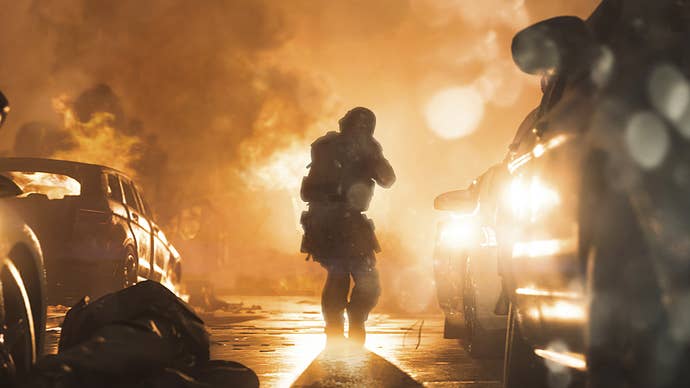
USG: Freedom Fighters are going to be the other perspective that players will be playing from, but in the demo I don't believe we ever learned what their country of origin is. What is the Middle Eastern country that the protagonist Farah and her brother are from?
Taylor Kurosaki: They're from the country of Urzikstan. And obviously, even if you're not a geography major, you probably realize that that is a fictional country. We did that on purpose. There's so many complex issues in the Middle East and that whole region of the world right now. For us to say that half of our campaign took place in a real world location, it didn't feel right to me and the team to take these incredibly complex situations—and we know how complex they are because we've done our research, where there are wars with 17 separate factions all in the same area—to distill that down into really rockable situations felt like it wouldn't be doing us any justice to be calling it out. You know, this game is inspired by a lot of different scenarios; a lot of thematic situations that are applicable to the Soviet War in Afghanistan in the '80s, up through the Iraq War, and even into Syria. A lot of those situations have a lot of similar scenarios and we were inspired by a lot of them and so, hence the fictional country.
There is a part in the first demo where the operators are going through the townhouse, and in one room a woman grabs a baby from a crib and the player doesn't shoot her, unlike everyone else. I found the whole sequence alarming, but that in particular made me wonder if it's possible for the player to shoot her, and if so, is there a repercussion for that? Or is it just a purely scripted moment where you cannot?
Well, discerning friend from foe in Call of Duty has always been a thing. You're not allowed to just run roughshod over the game and behave in a way that is counter to the way that an operator in that exact same scenario would be expected to behave. So, I would just say like in the most general sense the game holds you to the standard that you would be held to in the real world.
Will there be a karma system or anything to account for these sorts of decisions you're making that result in things like civilian casualties then?
Yes, there will be.
Will there be different endings, or is it more subtle? Can you go into more detail on what the karma system will be like?
I mean, it is a linear story. The only way to make a campaign of Call of Duty have the production value that everyone expects to have—world class animation and character development, things like that—is that it is a defined story. Now, there are choices that can be made throughout that do sort of alter the narrative in some ways, but you're always going to get the same ending. It's similar to going to the movies. This is an authored experience with a lot of tactical choice and a lot of clear agency. So no, you can't make the outcome different by going high chaos, for example, because frankly in the real world you wouldn't be allowed to go high chaos either. You'd be court-martialed, you'd be arrested. The world has ways of dealing with people who try to color outside the lines too much, and so does the game.
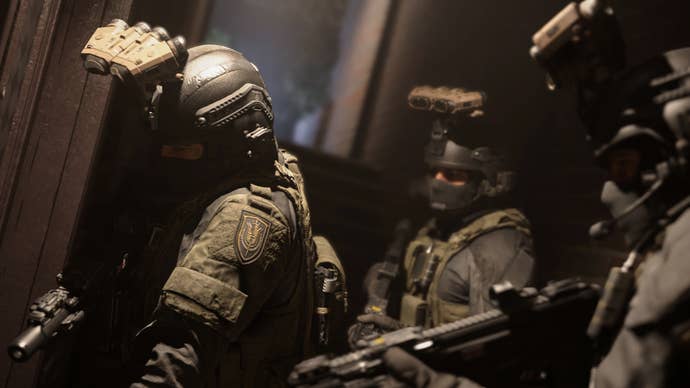
In the presentation there was a graph outlining the four different types of battles players will experience depending on whether they're an operator or Freedom Fighter, as well as other factors. I know we're not talking about multiplayer yet, but does that only apply to the single-player campaign, or is that the framing for Modern Warfare's combat as a whole?
Well, I will say that a big central tenet of this game is that it is one unified experience across all the modes. The fiction that governs the campaign also governs multiplayer and also governs cooperative play. So all of the factions that you saw represented in that graph are represented in all of the modes across the game.
And were the demos that we saw indicative of the sort of mission structure we can expect in the full game? They were both heavily guided and very provocative.
They vary. One of the things that not only is a hallmark of the Modern Warfare series [is] seeing war from different perspectives, like in the original series you had the AC-130 mission which was literally a very different perspective on asymmetric warfare. We're doing the same thing with this new game. That's seeing war from these different perspectives whether it be the Freedom Fighter perspective, the Tier 1 perspective, exotic perspectives like airstrikes and sniper missions, and things like that. That is absolutely a hallmark to the series and that carries over into this new reimagining.
But the mission structure is also varied. So you will have some missions that are tighter, that are more claustrophobic; you know, working your way through that townhouse [in the first demo], right? That townhouse, it's actually modeled after a real world location. We scanned data and we built it. It has the same dimensions as a typical walk up would, and because of that there are constraints. Like there's only one stairwell that goes from floor to floor, so that's the way you have to go up because that's the way that a real location like that would work.
So the goal of that mission that you saw was to have it be tight and claustrophobic and to really have consequence. Behind each door is the potential for danger and how you negotiate those doors: whether or not you kick them in with force, whether or not you slowly push your way in like in a very analog manner as you open it up gradually. Those choices have consequences. You can blast a hole in the destructible door with a shotgun and throw a flash bang grenade and it's done, the enemies on the other side. That's another way you can do it.
All of these things are valid and all these things have consequences in this really tight mission, but there are also missions that are totally different. That are huge. The playspace is gigantic, and players can go loud or remain in stealth. All the lights are destructible so you can actually create your own darkness and then use your night superiority to navigate this nonlinear multi-objective map. Again, in the same way that it's all about the different perspectives of war, there will be tighter missions and far far more open nonlinear missions as well.
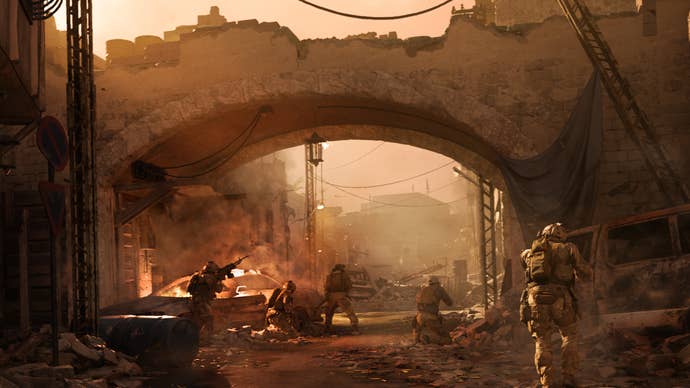
Captain Price is back in addition to the introduction of new characters like Farah. How'd you come to the decision of bringing characters back for this soft reboot?
Currently what the term "soft reboot" really means has been debated on the internet for the last few days now. We're calling it a reimagining of the series, and how we define that is Price has always been an awesome character.
Price has been a character that has gone back when Call of Duty was synonymous with World War II. Twelve years ago when Infinity Ward set out to make the first Modern Warfare game, I think people thought, 'Well that's weird because Call of Duty means World War II.' And for a long time, Call of Duty exclusively meant a series of World War II games, and Captain Price was a part of those games. When then-Infinity Ward made Modern Warfare, [...] they brought Price forward into those new games because he was a cool character and he still remains a cool character today.
All we did was update him for 2019. We updated him for the new world in today. Games were based largely on things like Operation Desert Storm, where you would see rows of tanks crossing the desert flying American and British flags, fighting against an enemy that was also in uniforms flying their own countries' flags. That was then and this is now. And so we retained Price and a lot of the characters that we love because they still are incredible. You know, he's still a guy who's a rogue. He's still a guy who is willing to bend the rules to get stuff done, and he's still a guy that knows how to fight in the margins, fight in the shadows to be effective. That's what he was, and that's what he is.
All we've done with him is we've reimagined him. We've recast him. The genesis of Price, the inception of Price, he was the combination of an artist's rendering of what a guy could look like, a fictional guy could look like. He was voiced by a different guy who looked nothing like him, and who was probably sitting in isolation in a VO booth sitting on a stool somewhere, trying not to move his head so much to make sure that he was still on microphone. Then his motions were created by animators and by stunt people and things like that. That's frankly not how we make games anymore. The process is much more similar to making a feature film where, let's say you're reimagining the Bond franchise. You're not looking for a lookalike or a soundalike of Pierce Brosnan; you're looking for a guy who embodies the essence of Bond. For this new Modern Warfare, we have found actors who embody the essence of these beloved characters and who bring them forward to today.
Modern Warfare 3 also features a terrorist attack on London, which we see at the start of the first demo for the new Modern Warfare too. Why the decision to return to that locale to establish the central conflict?
Well, our game takes place not only in London and not only in our fictional Middle Eastern adjacent country. It takes place in places like St. Petersburg, Russia. It takes place basically in Europe and in the Middle East.
So why pick a location that had been done in Modern Warfare 3? Well, I'll say that it's simply just a coincidence, frankly. We looked at places that can be potentially at flashpoints in the war on terror today. Any number of metropolitan cities could sort of fit that bill. And Price is a guy from the U.K., and this would be a location that is near and dear to his heart, where the war sort of finds its way to his doorstep. So for us, it was really about character motivation.
People today always, and I mean generally speaking people today in the west especially, we see that the war is always sort of over there, quote unquote. Over there is the way that we talk about it, and the reality is that it's not over there. The war can be anywhere and if it can be in Farah's backyard, which it literally was when her town was invaded, what if it was also in Price's backyard? This is what confronts us today when we talk about the concepts of modern war.
When we talked about making this game, we talked about reimagining this franchise, we said how do we define modern warfare? Can one of the things that defines it is that the war be potentially anywhere and everywhere at a moment's notice? And thankfully people like Price are out there in the shadows making a difference and preventing the war from hopefully being in any of our backyards.
This interview has been edited and condensed for clarity.
Call of Duty: Modern Warfare is set for release on October 25 on PlayStation 4, Xbox One, and PC through Blizzard's Battle.net, like last year's Black Ops 4.
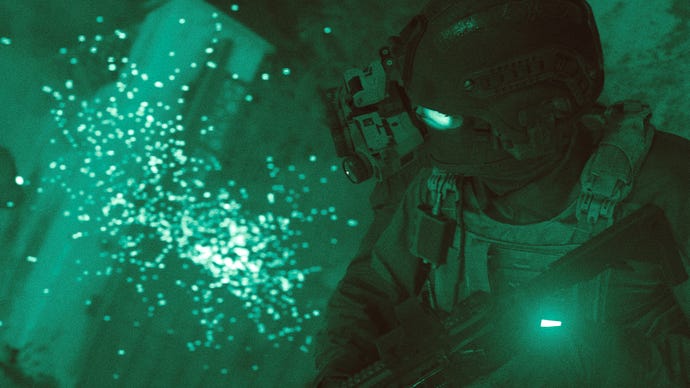


.jpg?width=291&height=164&fit=crop&quality=80&format=jpg&auto=webp)
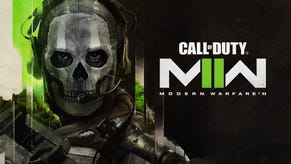
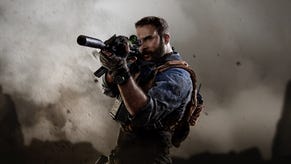
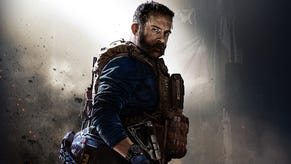

.jpg?width=291&height=164&fit=crop&quality=80&format=jpg&auto=webp)
